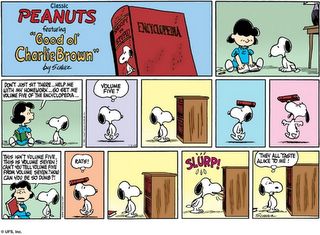Note to S_______ on the Soul and Free Will
Note: A friend in college emailed me and asked for help on some technical questions related to soul and free will. Here is my answer to her, since they are salient issues – may help others.
Hi S_______!
Your first question: Aristotle argues that the human person is fundamentally a composite union of body and soul; Plato argues that the human person is fundamentally the soul only. Which philosopher do you think is right, why, and why does this matter?
I think this summation of Aristotle and Plato [or, Socrates through Plato] is a caricature.
But to answer both Aristotle and Plato, I would say that Christianity affirms the best streams in both.
Plato saw the soul as immaterial and eternal [and basically personal], whereas Aristotle tied the soul to body as some life force [potentially collective if not tied to body, body makes it personal].
Platonic abuse gave rise to a dualism, which viewed the soul as ‘real’ and pure, but the body and ‘apparent’ and evil [Gnostics]. Some Gnostic teachers tempted early Christians with this doctrine -- to where Apostles had to write and tell them that it did matter what they did with their bodies, and that their bodies were being redeemed along with souls. John affirmed that Jesus did have a body, and it was good [see: Epistles].
Aristotelian abuse gave rise to a kind of early New Age thought that the force of human intellectual activity is not a person’s own intellect or soul but rather a kind of collective, cosmic mind [Averroes and Arabic commentators]. Aquinas addressed this definitively in Summa Theologica [cf. I 76.1:6] and also in his commentary on Aristotle’s De Anima [“On the Soul”].
Short answer: Christianity affirms the best of both Aristotle and Plato in asserting that humans are body and soul, but that this soul is personal and eternal. Christianity affirms the goodness and necessity of the body in the doctrines of Creation [in the Image of God, Imago Dei] and Incarnation [God become actual human flesh in the Lord Jesus Christ]. Christianity affirms the goodness of the body also in the doctrine of Resurrection of the actual body, which will be raised incorruptible and reunited with justified soul: again a whole person…yet redeemed in totality, eternally.
Plato was right to see a reflection of the person in eternity, through soul. Aristotle was right to affirm the necessity of the body to the person. Christianity brings both together in consistent doctrine.
Why does this question matter? Related to the social direction, a consequence for society would be how we view the human person, and affect social help. If the body is a real expression of the person, then we [as Christians] must also be called to improving the physical conditions of others as we can. Does that make sense?
It speaks to our potential redemption of body on this planet [what present sanctification really means] and to our eternal state: will we be persons, ‘known as we are known,’ in redeemed bodies, or just immaterial souls, or…even worse, a drop of water in some collective ocean?
Second question: Albert Einstein argued that God does not play dice with the universe, in other words: that there is no chance and no free will. Werner Heisenberg, his colleague, completely disagreed. And, Dr. Blackburn has provided arguments on both sides. According to you, do human beings have free will or not? If so, why and what are the consequences for your understanding the human person and human society? If not, why not and what are the consequences?
Again, I think this is a caricature of Einstein’s position, definitely…especially his later in life stance. But, I’ll not complain and just address the question of ‘free will.’
The term ‘free will’ is loaded, as in, “What is really meant by free?” I like to treat the issue in terms of human will, rather than linking it with ‘free’ necessarily, because no human is 100 percent ‘free’ simply because of setting in life, physical makeup, emotional issues, psychological motivations, scars of sin, world events, national laws, etc.
Most Christians assert that humans have will, which can be somehow partnered with God [Good], or evil.
However, when we talk about free will or will, we inevitably brush up against a paradox of God’s control of the universe vs. our human choice, i.e. sovereignty vs. free will.
Scripture holds both sides of the paradox strongly, on one hand we see God’s righteous decrees in Christ, and God’s hardening the heart of Pharaoh so that the children of Israel could go free, and later, hardening the hearts of Israel, so that the Gentiles could be brought in. In these passages, there doesn’t seem to be much free will. Yet, almost in the same breath, Scripture commands humans to ‘choose this day whom you will serve.’ And, to ‘work out your salvation with fear and trembling!’
I think the best way to frame it is to say that we have ‘free will’ within the parameters of sovereignty [grace]. Or, we are commanded to use our wills, and will answer for that usage, but if we exercise our wills against sovereignty, at some point we destroy ourselves from existence.
C. S. Lewis, who affirms free will, puts it this way: ‘Our freest actions are our most compelled.’ Nice answer to a problem, huh? :-) lol.
For me, the hugest issue related to free will is the question of evil it relates to philosophically.
Simply: If there is no such thing as human will, then evil is a result of God’s command.
How can we affirm sovereignty yet also say that God is not the author of evil? Aquinas gave the best answer: God does not dictatorially cause or will the evil of sin:
[God] in no way wills the evil of sin, which is the privation of right order towards the divine good. The evil of natural defect, or of punishment, he does will, by willing the good to which such evils are attached. Thus in willing justice he wills punishment; and in willing the preservation of the natural order, He wills some things to be naturally corrupted... [1]
The statements that evil exists, and that evil exists not, are opposed as contradictories; yet the statements that anyone who wills evil to exist and that he wills it not to be, are not so opposed; since either is affirmative. God therefore neither wills evil to be done, nor wills it not to be done, but wills to permit evil to be done; and this is a good. [2]
Punishment is a function of the good to which evils are attached, not a function of prior divine imperative. God cannot will the sinner to evil, since this is a “privation of right order towards the divine good.” God can will a context in which the sinner chooses evil, but this is only because God has first willed the attendant good. The sinner wills evil, and God wills punishment, or justice, which is a good.
Complex issues require complex answers, and this answer is complex yet clear.
God has caused a context of evil, but it is only because of a creation of good: Humans. Which, to be human is to be willed, therefore evil is in potentiality, not divine decree. God has willed good and done well: He created, in highest order, willed beings carrying His Image.
Yet, because evil is a deprival of right order toward this divine good, it carries with it necessary punishment [and evil]. God has created creatures to live toward Him, and in that living toward, to live abundantly, freely and forever. So, when these creatures turn from Him, they turn from their Source, their Life. Which necessitates punishment and death [evil].
Evil exists in the world only because of its attendant nature related to Good.
We have this powerful answer to the ‘problem of evil,’ only because we also affirm that humans are willed.
Take away the fact of human will, and you have God creating creatures that would fall just so He could punish them, and allow them to wallow in evil…desperate picture, huh?
Anyway, hope this helps! :-)
Loy
P.S. Go to library and look in Kreeft’s Apologetics Handbook, page 137 has a discussion of free will that might be helpful [in the chapter, Problem of Evil].
___________________
[1] Thomas Aquinas, Summa Theologica, I 19.10. From: Thomas Aquinas, Summa of the Summa: The Essential Philosophical Passages of St. Thomas Aquinas’ Summa Theologica Edited and Explained for Beginners, edited and annotated by Peter Kreeft (San Francisco: Ignatius Press, 1990), 176.
[2] Aquinas, ST, I 19.10.






